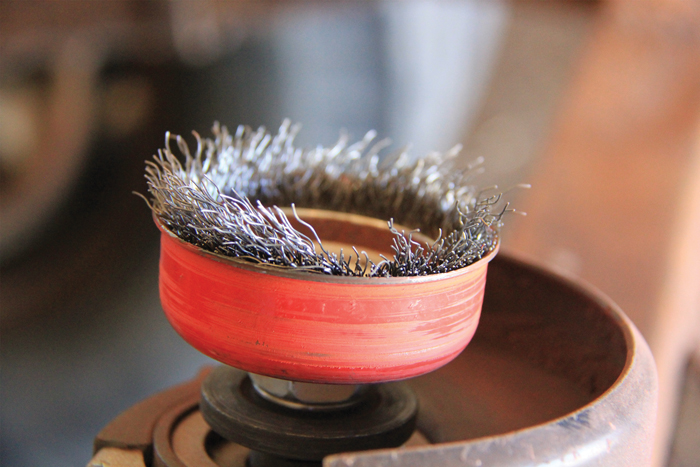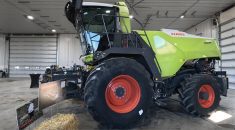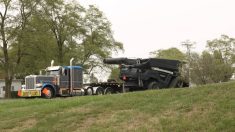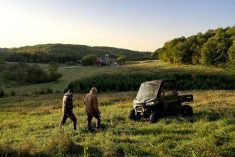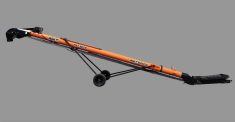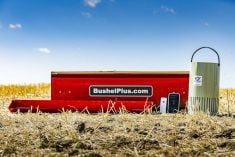The welding instructors during my college days were strict enforcers of a dress code. Show up without proper safety clothing — or worse yet, with a Bic lighter in your pocket — and you were sent home. (Welding sparks could melt the plastic casing on the disposable Bics and ignite the butane fuel inside them.) Without strict adherence to safety rules, it was just too easy to get hurt in the college’s shop with welders and torches going at every workstation.
On the farm it can be tempting to let shop safety practices slide. A couple of incidents in my shop reinforced the need to stay safe.
Read Also

Claas brings 1000 Series SP forage harvesters to Canada
In mid-August, Claas unveiled its new line of Jaguar forage harvesters at an event in Visalia, California, deep in the heart of that state’s dairy region.
First, while working on Grainews Project CJ3A, I was lying under the Jeep chassis. My safety glasses had a slight tint and were making it hard to see in the dim light, so I took them off to get a better look. A few seconds later a bolt that was lying on the frame fell and hit me in the eye — Murphy’s Law. Fortunately, it didn’t cause anything more than a temporary ache.
But it highlights the need to ensure you use the right safety gear. Tinted safety glasses are useful when working outside or to help minimize the affects of arc flash if you accidentally touch a torch to a work piece without your helmet down when welding. But for mechanical work inside the shop, clear lenses are the best.
Keeping disposable lens cleaning patches on hand inside the shop for your safety glasses is a good idea.
The second shop incident could have been much more serious. While using a wire brush attachment on an angle grinder to strip some paint and rust — again on Project CJ3A — my safety glasses came in handy. (Yes, this time I kept them on.) Several wire bristles stripped off at the grinder’s rated speed of 12,000 r.p.m. and were flung back at me. I was protected, but I was also wearing an additional full-face safety shield, which deflected the flying debris heading toward my face. When using tools like a grinder that send off fragments at high speed, ordinary safety glasses alone aren’t adequate. Always wear a full-face shield.
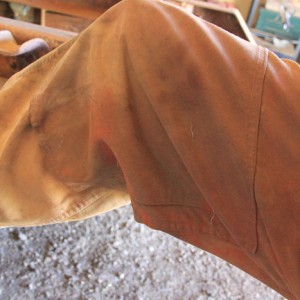
I was also wearing heavy coveralls, which protected the rest of my body. Several of the flying bristles embedded themselves in the thick denim fabric. It took a minute or so to pluck them all out. The metal fragments probably would have only caused minor scrapes if I hadn’t had thick clothing on.
Are safety glasses a requirement for anyone working in your farm shop? Do you enforce defined safety practices on your farm?
Even with ample safety gear in my shop, I have to admit, there have been a couple of trips to the medical clinic for treatment of shop injuries over the years. But thanks to the training provided by those college instructors, the injuries have been few and far between.


